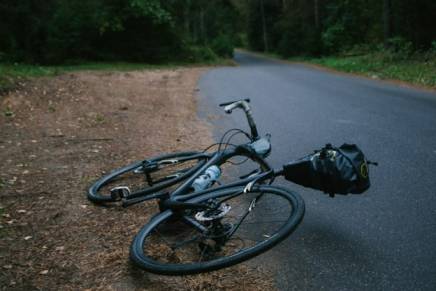
Table of Contents
Introduction
Being involved in a bicycle accident can be a frightening experience, but knowing how to respond can make a significant difference in your recovery and legal process. Minor bicycle accidents happen every day and have no significant effects on one’s life.
However, if you have been involved in an accident that has resulted in injuries and was caused by someone else’s negligence, you will need to follow the right procedure to keep yourself safe and get the compensation you are entitled to
Here’s a detailed guide on some essential things you will need to do immediately after a bicycle accident.
1. Assess Your Safety
After a bicycle accident, your first priority is to ensure your safety and the safety of others involved. Check yourself for injuries, particularly any signs of head trauma or broken bones. If you are able to move, carefully relocate to a safe area away from traffic to avoid further risk.
If you suspect any serious injuries, it’s important to stay still and wait for medical assistance to avoid exacerbating any potential spinal or internal injuries. Assess the condition of others involved in the accident and provide assistance if needed, such as calling emergency services for medical help.
2. Exchange Information with the Person at Fault
Exchange contact information with all parties involved in the accident, including motorists, pedestrians, or other cyclists. Also, get names, phone numbers, addresses, and insurance details from everyone involved.
Additionally, collect contact information from any witnesses present at the scene. Witnesses can provide statements that may corroborate your account of the accident and support your insurance claim or legal case. Having detailed contact information ensures you can communicate with all relevant parties and their insurers during the claims process.
3. Document the Scene
Documenting the scene of the accident is what will help you establish what happened and support your insurance claim or legal case. Take photographs from multiple angles, capturing the positions of vehicles, bicycles, road conditions, traffic signs, and any visible injuries or property damage.
Include close-up shots of any damage to your bicycle and the surrounding environment. Note the time of day, weather conditions, and any other relevant factors that may have contributed to the accident. Detailed documentation provides strong evidence to support your version of events and helps investigators reconstruct the sequence of events accurately.
4. Get Medical Attention
Even if you feel relatively unharmed immediately after the accident, it’s important to get medical attention right away. Some injuries, such as concussions, internal bleeding, or soft tissue injuries, may not show symptoms until hours or days later.
A thorough medical evaluation can identify hidden injuries and ensure they receive timely treatment, preventing complications and supporting your recovery. Keep all medical records, including diagnoses, treatments, prescriptions, and follow-up instructions, as these documents are crucial for documenting your injuries and their impact on your health.
5. Consult with a Legal Professional
Consider seeking guidance from a qualified personal injury attorney who specializes in bicycle accidents. An experienced attorney can provide invaluable legal advice, protect your rights, and advocate on your behalf throughout the claims process.
They can help you navigate complex legal procedures, negotiate with insurance companies to maximize your compensation, and prepare a strong case for litigation if necessary. A skilled attorney understands the intricacies of bicycle accident laws and can leverage their expertise to achieve a favorable outcome for your case.
When looking for a lawyer, make sure you find a local one who is well-versed in the laws of the area in which the accident occurred. For example, if you live in Las Vegas, you will need to look for reputable Bicycle Accident Lawyers in Las Vegas and find the best one that suits your needs.
6. Report the Accident
Report the bicycle accident to local law enforcement or the appropriate authorities as soon as possible. In many jurisdictions, filing a police report is mandatory for insurance claims involving accidents. When law enforcement arrives, provide a detailed and accurate account of the accident, including the location, time, and circumstances leading up to the collision.
Cooperate fully with the investigating officers and avoid speculating about fault or responsibility. The police report serves as an official record of the incident, documenting key details that may support your insurance claim or legal case.
7. Notify Your Insurance Company
Notify your insurance company promptly after the accident to initiate the claims process. Provide your insurer with a comprehensive account of the accident, including your location, the involvement of other parties, and any available documentation, such as photos or witness statements.
Be truthful and transparent in your communication to ensure the efficient processing of your claim. Your insurance company will guide you through the necessary steps, such as submitting documentation, scheduling vehicle assessments, and facilitating repairs or compensation for damages.
8. Take Care of the Evidence
Preserving physical evidence related to the accident is essential for supporting your insurance claim or legal case. Keep your damaged bicycle, helmet, clothing, and any other personal belongings in their current condition until they can be inspected by your insurance company or legal representative.
Avoid making repairs or alterations to these items, as they may provide critical evidence of the accident’s severity and impact on your property. Securely store any relevant documentation, such as medical records, police reports, witness statements, and correspondence with insurers, to substantiate your claim for compensation.
8. Keep Track of Expenses
Maintain a detailed record of all expenses incurred as a result of the bicycle accident, including medical bills, transportation costs, lost wages, and other out-of-pocket expenses. Organize your receipts and invoices chronologically to facilitate accurate documentation of your financial losses.
These records serve as evidence of your economic damages and support your claim for compensation from insurance or legal settlements. By carefully tracking expenses, you can determine the financial impact of the accident and pursue appropriate reimbursement for your losses.
Going through the aftermath of a bicycle accident requires a systematic approach to ensure your safety, protect your legal rights, and facilitate your recovery. Just be sure to do everything immediately to get the compensation you deserve for your losses.


